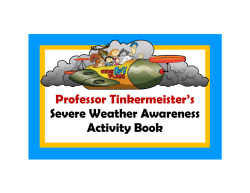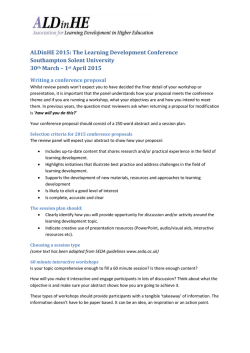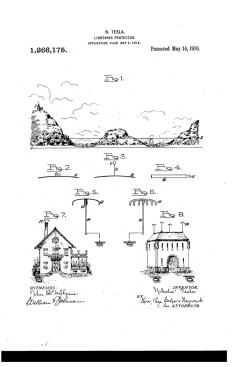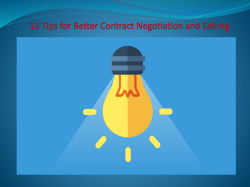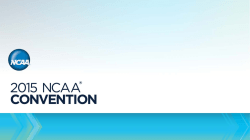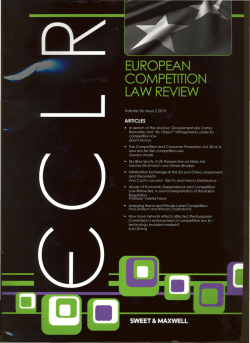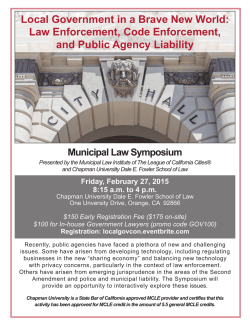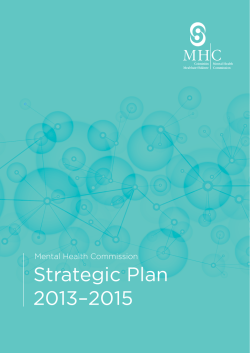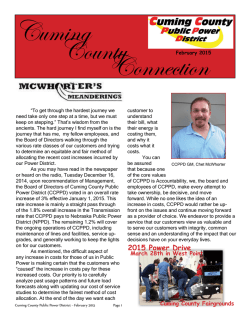
Jan/Feb 2015 Newsletter
Visit us at www.idealchemical.com 4025 Air Park Street Memphis, TN 38118 Phone 901.363.7720 1.800.232.6776 106 Ware Street Jackson, MS 39208 Phone 601.932.4920 1.800.824.0356 5800 Jefferson Highway, Suite B Harahan, LA 70123 Phone 504.733.3531 1.800.233.6776 3848 Industrial Circle Bossier City, LA 71112 Phone 318.746.4358 1.800.231.6776 AGENT AUTHORITY BORDER CASH CONFINED COUNTERFEIT CRIMINAL CUSTOMS DISTRIBUTED FEDERAL IMMIGRATION LIGHTNING OUTDOORS PIRACY PRINCIPLE RESPONSIBLE RESTRICTED SMUGGLING SPACE STORM TANK THUNDER VESSEL WATCHES Ideal Word Search E Y A C S P F Y S F T Q R N G R I T P R E I M K I X D E O N P E A I D I U R E U R C S I I T C S E R G M F A N H U T T N E N R P G O R I I C S S R A T Y A E L O E H F N H Y T I R H L G I G T N N T S A H O C G G O G N V B U N I A C O V S C A I U W K A L G M S T E I M I L Y O D I S T R I B U T E D M B C O U T D O O R S L M H K I O R E D N U H T R R H E C N C R V E S S E L M R O T S T A D D Q Q T O L C T P N Q E A T Q E E L P I C N I R P Y Z W N O R ICE and Homeland Security Investigations special agents investigate more than 400 violations of criminal law a year. However, the special agents don’t operate by themselves. They work with other federal agencies; international, state and local law enforcement; and everyday people around the world. around the world. The Tip Line Unit is staffed by special agents, intelligence research specialists and law enforcement specialists. The unit receives 180,000 leads annually and has immediate access to interpreters who speak more than 300 lan- & Supply Co. Volume 9, Issue 1 Safeguarding America borders, including bulk cash smuggling, manipulation of commercial trade, money service businesses and financial institutions. Chemical continued from page 1. and have the capability to customize questions to meet the needs of national enforcement priorities. Anonymous tips can be reported to the tip line via tollfree numbers 1-866-3472423 within the U.S., Mexico and Canada, and 802-8726199 from locations around the globe. The HIS Tip Line and the HIS Online Tip Form serve as conduits for individuals to report suspected criminal activity. Managed by the agency’s Tip Line Unit, the tip line Containers have revolutionized the shipand tip form receive and ping industry, but they also allow the record information from the general public and smuggling of illegal goods. If you see a law enforcement 24/7. suspicious container—report it! Investigative leads are forwarded to 6,700 speguages. Unit members also cial agents in 200 cities nareach out to duty agents to retionally, and to 47 countries lay time sensitive information Tips can also be reported online at www.ice.gov/ tips. When completing the online tip form, users should provide the most complete and accurate data available by entering information in all applicable data fields. Users are also encouraged to provide any additional identifying details, such as dates of birth and social security numbers, in the narrative text box. The information provided will assist investigators as they look into reported violations. January/February 2015 Ideal Saife News Safety Awareness Is For Everyone Safeguarding America Inside this issue: Reporting Counterfeits and Piracy 2 The Guiding Principles of the NACD 2 When Thunder Roars... 3 Responsible Distribution 3 Word Search 4 Safeguarding America 4 As an importer of foreign goods, the Department of Homeland Security recognizes Ideal Chemical’s role as a supporter of custom and counterfeit laws. If you see suspicious goods or activities, help enforce our laws by reporting it. U.S. Immigrations and Customs Enforcement (ICE), the largest investigative agency in the Department of Homeland Security, is charged with securing the homeland by en- forcing customs and immigration laws. Building on a law enforcement legacy spanning over 200 years, ICE’s Office of Investigations is at the forefront of protecting people and revenue of the United States. Through their broad authorities and collective expertise in investigating financial, trade, smuggling and immigrationrelated violations, ICE has found that criminal organizations often earn funds through highly profitable cross -border crimes—including commercial fraud, intellectual property crime, immigration document fraud, drug and weapon smuggling and human smuggling and trafficking. At the same time, these organizations employ a wide range of strategies to move their funds within and across Continued on page 4. Confined Space—What is it? Confined space is a space that is large enough and so configured that an employee can bodily enter and perform assigned work; and has limited or restricted means for entry or exit (for example, tanks, vessels, silos, storage bins, hoppers, vaults, and pits are spaces that may have limited means of entry). Confined space is not designed for continuous employee occupancy. Confined spaces present a number of hazards for those who enter them. These hazards are increased when there are chemicals involved. Workers can be overtaken by fumes that remain in tanks, or engulfed by chemicals after a tank was thought to have been emptied. Employees working in these hazardous conditions have been known to suffocate from the lack of oxygen, be crushed to death, or lose consciousness. Confined space entry requires permits and training. Only an authorized entrant can enter a confined space. That is an employee who is authorized by the employer to enter a permit space. Here at Ideal we do not authorize any employee to enter a confined space. Ideal is considered a host employer. A host employer is any employer who arranges to have the employees of another employer (contractor) perform the work for them. Our confined space entry is limited to outside contractors who have the training and necessary skills to work in these spaces. Do not enter any confined space such as a tank. Leave it to the people who are trained to do so. The regulations concerning confined space entry are governed by OSHA, NIOSH, and the American National Standards (ANSI). Page 2 Page 3 Reporting Counterfeits and Piracy Counterfeit goods not only infringe on the property rights of producers, they are often inferior products that can pose a serious risk to the consumer. Here are some examples of seized counterfeit goods. The National Intellectual Property Rights Coordination Center (IPR) is the U.S. government’s clearinghouse for investigation into counterfeiting and piracy—crimes that endanger public health, public safety and fair competition. Through its growing network of partner agencies, the IPR Center strives to maximize resource effectiveness and mitigate vulnerabilities which threaten international trade. The Center’s enforcement strategy focuses on ensuring national security by protecting the health and safety of the U.S. public, the federal supply chain, and U.S. war fighters and stopping predatory and unfair trade practices that negatively impact the global economy. The IPR Center uses the unique authorities, resources and expertise of its member When the Thunder Roars, Go Indoors! agencies to share information, manage, investigative leads, coordinate investigations, and provide training and assistance to federal, state, local and international law enforcement agencies. Since most counterfeit goods are produced internationally, IPR Center partner agencies’ attaché offices work with domestic field offices to coordinate investigations with host country law enforcement, and work with industry and their counterparts on trade related matters. reporting a suspected violation, please provide as much of the following information as possible. The complete list of requested information, in its entirety, can be found at iprcenter.gov. “Summertime and the livin’ is easy,” so the George Gershwin song goes. True it is a time for picnics in the park, dips in the pool, golf outings, and hikes in the mountains. What items have been seized that are counterfeit? The top 10 list of fake goods are: Violent summer storms can form quickly and stretch for hundreds of miles. Thunderstorms can produce deadly lightning capable of striking up to 10 miles away—so, even if you don’t see rain you could be in harm’s way. But the summer weather isn’t all fun in the sun. 10. Pharmaceuticals 9. Jewelry 8. Watches and watch parts Making a Referral to the IPR 7. Cigarettes 6. Computers and hardware The IPR Center encourages members of the general public, rights holders, trade associations, law enforcement and government agencies to report instances of IPR theft. The information you provide will be revived promptly by IPR Center staff and disseminated for appropriate investigative response and tactical use to IPR Center partners. When 5. Media—Movies, CDs 4. Handbags, wallets, backpacks 3. Clothing 2. Consumer electronics 1. Footwear “When planning outdoor activities, we want you to remember that lightning is extremely dangerous,” says John Jensenius, National Weather Service lightning safety expert. “Lightning can kill— and even those who survive a lightning strike are often left with permanent and serious disabilities. The best advice is when thunder roars, go indoors’.” Striking Statistics That Can Save Your Life Don’t be fooled by blue skies. If you hear thunder, lightning is close enough to pose an immediate threat. Each year in the United States, more than 400 people are struck by lightning. While it’s true a small percentage of lightning strike victims die, many more survivors are left with serious The Guiding Principles of the NACD Each NACD member’s senior management pledges to manage its business according to the following principles: 1. 2. 3. To recognize and respond to community concerns about chemicals, their handling, and transportation. To make health, safety, security, and environmental considerations a priority in our planning for all existing and new operations products, processes, and facilities. To inform emergency response officials, employees, customers, and the public of manufactur- er’s information on chemical-related health or environmental hazards, and the manufacturer’s recommendations on protective measures. 4. 5. To work with customers, in accordance with the manufacturer’s recommendations, on product stewardship including handling, use transportation, and disposal of chemical products. To operate our plants and facilities in a manner that protects the health and safety of our employees, the public and the environment. 6. To cooperate in resolving problems created by past handling and disposal of hazardous chemicals. 7. To participate with government and others in creating responsible laws, regulations, and practices to help safeguard the community, workplace, and the environment. 8. To promote the principles and practices of Responsible Distribution Process by sharing experiences and offering assistance to others who produce, handle, use, transport, or dispose of chemicals. lifelong pain and neurological disabilities. No Such Thing as a Lucky Strike To avoid being struck by lightning, NOAA’s National Weather Service recommends that you: To help you learn how to recognize and avoid the dangers of lightning, NOAA’s National Weather Service proudly sponsors Lightning Safety Awareness Week. Go indoors at the first sign of a thunderstorm. Stay indoors for 30 minutes after the last thunder clap before resuming outdoor activities. Lightning is a serious danger. Keep your summer safe and full of easy living by learning more at www.noaa.gov.. Monitor the weather forecast when you’re planning to be outdoors. Have a plan for getting to safety in case a thunderstorm moves in. Stay away from isolated tall trees, towers, or utility poles. Lightning tends to strike the tallest objects in an area. Do not use a corded phone during a thunderstorm unless it’s an emergency. Keep away from plumb- ing and electrical equipment/wiring during a thunderstorm. The National Weather Service tracks when and where lightning fatalities occur in order to understand who is a greatest risk and where to focus safety and education efforts. Responsible Distribution Ideal Chemical is proud to be a member of the National Association of Chemical Distributors. In December 1991, NACD’s member companies undertook the most important mission in the Association’s history and approved the Responsible Distribution Process as a membership requirement. Originated in Canada to manage the safe handling and distribution of chemicals, Responsible Distribution has spread across the globe. Responsible distributors in multiple countries are committed to the principles and practices of Responsible Distribution. It is the only industry practice that explicitly addresses the specific environmental, health, safety, and security challenges NACD members manage every day. Today this commitment continues to enhance the industry’s credibility with regulators, suppliers, customers, insurance firms, and the public through demonstrated advancement in environmental, health, safety, and security improvement.
© Copyright 2026
